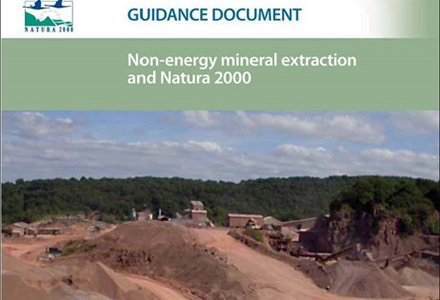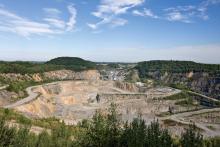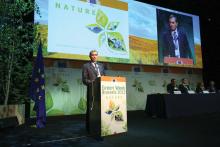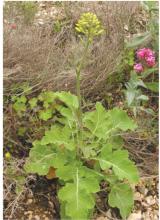
The 1979 Directive on the conservation of wild birds (Birds Directive) and the 1992 Directive on the conservation of natural habitats and of wild fauna and flora (Habitats Directive), known together as the Natura 2000 Directives, are the cornerstone of the EU Nature Legislation.
The aggregates industry is familiar with the legislation. Its implementation can create heavy difficulties in some Member States or even some regions as some extraction projects have come into conflict with competing land uses or biodiversity conservation interests.
This led to the publication of a Guidance Document on “Natura 2000 and Non-Energy Extractive Industries,” and a corresponding leaflet.
The messages carried by these EU documents are constructive and balanced: they remind that Natura 2000 sites do not intend to be no development zones and that some extraction projects can ultimately be beneficial to biodiversity by providing highly quality ecological niches.
As part of its evolution towards smarter regulation, the European Commission is reviewing several pieces of legislation.
The Natura 2000 Directives will, in this framework, be assessed through a fitness check, which is a comprehensive policy evaluation assessing whether the regulatory framework for a policy sector is fit-for-purpose.
The findings will serve as a basis for drawing policy conclusions on how well EU policies have been performing and will feed into possible consideration on the future of the relevant regulatory framework.
The Natura 2000 fitness check will examine, among other items, the implementation and integration successes and problems; the costs of implementation and of non-implementation of the legislation; the opportunities for improving implementation and reducing administrative burden without compromising the integrity of the purpose of the directives; the situation of implementation in different EU countries, and the views of key stakeholder groups.
Such an exercise could potentially be an opportunity for the aggregates industry, which faces some difficulties with access to resources.
In the Mission Letter to Environment Commissioner Vella, President Juncker asked him to “carry out an in-depth evaluation of the Birds and Habitats Directives and assess the potential for merging them into a more modern piece of legislation.”
This is highly controversial and environmental NGOs have already positioned themselves as opposed to any revision, fearing that nature protection might be watered down.
The role of the aggregates industry in the evaluation process is of strategic importance, and the sector needs to reply to key questions: are the challenges arising from the requirements of the Directives or from implementation at national level? How to overcome these issues challenges at national level?
UEPG will also guide its members for the evaluation at national level, and reply to the online public consultation which should take place in April-June 2015.
The Commission will report on the findings of the fitness check during the first quarter of 2016, and will then decide on the relevance of a revision.










